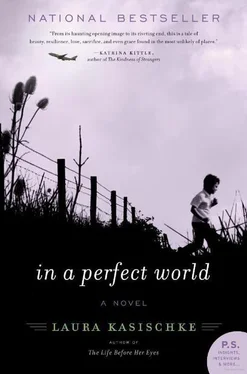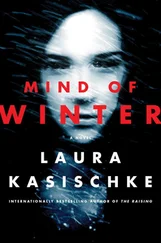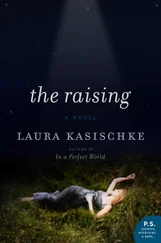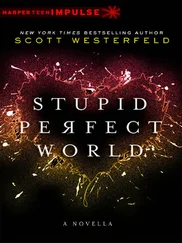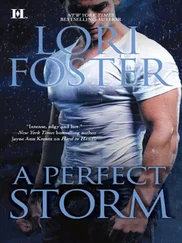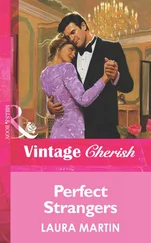Farther into town, in the business district, no stores at all were open. The jewelry store where Jiselle had bought the bracelet for her mother, and outside of which she’d seen the reindeer, appeared to have been vandalized. The plate glass was shattered, and the shards and diamonds of the destruction glittered in the sunlight.
The bank was closed, too—the lobby windows dark—but Jiselle was happy to see that the drive-up appeared to be open. A little sign reading PULL FORWARD was illuminated over one of the lanes. She did. Behind the Plexiglas, a young woman was sitting very still, barely visible in the glare. Either the young woman was very deep in thought, or she was listening carefully to something. When she didn’t move or look in their direction, Jiselle pressed the green button for service, and the bank teller jumped, snapped to attention. “Yes?” she said into her intercom.
“I just need some cash,” Jiselle said. “And to check my balance.”
“Okay,” she said.
Jiselle could see the young woman more clearly now. Really, she was a girl. No older than Camilla. Maybe closer to Sara’s age. Jiselle put her bank card and her driver’s license into the metal tube, hit the Send button, and in seconds the tube had shot across the empty parking lot and into the darkened bank.
“I go to school with that girl,” Sara said. “Or went to school with her. Her father manages this bank. I wonder where he is.”
Jiselle looked toward the bank. It did not look like a place that needed a manager. It was impossible, really, even to think of it as the same place where she’d stood in a long line the day she’d seen Tara Temple. Or, before that, the professional-looking men and women in their glass offices, signing papers, fingers flashing over keyboards, the appearance of important transactions taking place, official forms needing to be filled out. After what seemed like a long time, the girl came back and said, over the intercom, “Mrs. Dorn?”
“Yes?” Jiselle said.
“This account has been closed. There’s nothing in it.”
“What?” Jiselle asked.
“The account’s closed,” the girl said. “Someone closed it.”
Beside Jiselle, Sara shook her head. “Asshole,” she said under her breath, and then to Jiselle, touching her shoulder gently, “Let’s just go. We don’t need money. There’s nothing to spend it on anyway.”
Jiselle said nothing. She was too stunned to speak. The girl raised her hand, as if in apology. She said, “Bye, you guys.”
At the pet shop, Jiselle didn’t even bother to slow down. The biohazard tape was draped across the front window and wound around the entrance.
“He did this to my mom, too,” Sara said. “He was always fucking around, of course. Captain Cliché. He cut her off completely just before she died. We were eating nothing but peanut butter. My dad was pretty much out of our lives until she died. I mean, he loved you, Jiselle, I’m sure. But. I’m sorry. My dad is—with women. My dad is a—”
“Fool for love,” Jiselle whispered after a long silence between them. She was trembling, and tears fell in large drops from her eyes and onto her bare arms. She pulled over outside the smashed glass of the pharmacy and turned the car off to save gasoline. She got out, walked around to the passenger side, and asked Sara to drive. She’d turned sixteen the month before, and although, with the secretary of state’s office closed down, Sara had been unable to get a license, she’d known how to drive for years.
Why, Jiselle thought, looking down at her empty hands in her lap, was she surprised? What kind of fuzzy logic had made her think that he would keep the money in the bank account for her, that he would not find some new love of his life, on a plane, in a foreign city, in the back of a taxi careening through narrow European streets, or quarantined at the Gesundheitsschutzhaus?
She heard her mother’s voice:
Don’t be even more of a fool than you’ve already been, Jiselle.
She remembered what she’d said in the car on the way to the wedding:
Look, your father was fucking Ellen since the two of you were fifteen years old.
Before starting up the Mazda, Sara said, “We understand. We understand if you want to go.” She turned her face to the windshield and began to pull the car into the road. Jiselle reached over and grabbed Sara’s hand so quickly she hadn’t realized she’d done it. Sara didn’t turn to look at her, but let Jiselle’s hand rest on her own on the steering wheel, and Jiselle saw a tear slip down her perfect nose and drip from the end of it, disappear onto the upholstery.
In the oncoming lane, a figure on a red bicycle wobbled past them. He didn’t look at their car as he pedaled past. He was bent over his handlebars, legs moving wildly, propelling himself forward, staring straight ahead, like someone on whom, recently, a terrible spell had been cast.
Jiselle thought of the little boy she’d seen so long ago, when Mark drove her through St. Sophia for the first time.
This was, she felt sure, the same boy.
“Did you get something for Beatrice to eat?” Sam asked.
Jiselle swallowed before she said, “No.” She had to look away when she saw the expression on his face. “But Sara has some ideas,” she said, “about how to make food that Beatrice will like.”
After the bank, on the way out of town, they had stopped at the Safeco, surprised to find it open and with a few modest things still on the shelves—the kinds of things no one ate because they didn’t know how to prepare them or didn’t want to eat them. Lentils. Wheatberries. Bulgar. Dried seaweed. A few burlap bags full of raw chestnuts. From what was there, Sara had been able to gather up the three ingredients she thought might mimic those listed on the commercial bag of fowl feed: vegetable oil, corn meal, chestnuts.
“We’ll crush up the chestnuts,” she said, “and just mix the rest of it so it’s about the same consistency as the other stuff. There’s plenty of protein. If Beatrice doesn’t mind the taste, she should be okay.”
“How do you know so much about birds?”
Sara smiled, shrugged. “I’ve thought a lot about birds,” she said.
As it happened, Beatrice loved what they came to call Sara’s Fabulous Fowl Feed.
That night Jiselle stayed up long after the children and Diane Schmidt had gone to bed. She paced for a while, and then she simply sat in the family room looking out the window at the dark ravine, and then she made her way in the dark to Mark’s room. Instinctively, she hit the light switch when she entered—an old habit that, it seemed, would never die—and was surprised when the overhead light came on. They’d made a new habit during the outages of being sure that all the appliances and light switches were off before they went to bed because it was so alarming to wake up in the pitch darkness to the sudden blazing of overhead lights, or the blare of the television, or the microwave beeping, or the stereo—or all of them at once—when the power came back on unexpectedly.
She rubbed her eyes in the bright, surprising light and saw, draped across the foot of the bed, an exquisite triangle of fawn-colored yarn spread on the bed: the shawl Sara had been working on.
Jiselle ran her hand over it.
It was fringed with silk thread.
She picked up the edge of it.
Soft and warm but also exquisitely light.
Finished.
She sat on the bed, still running her hands over it and then saw the note beside it:
Finally, I got my act together to give something to you.
Happy Birthday.
xoxo Your Wicked Stepdaughter Sara
Her birthday. Jiselle herself had completely forgotten. How had Sara remembered?
Читать дальше
